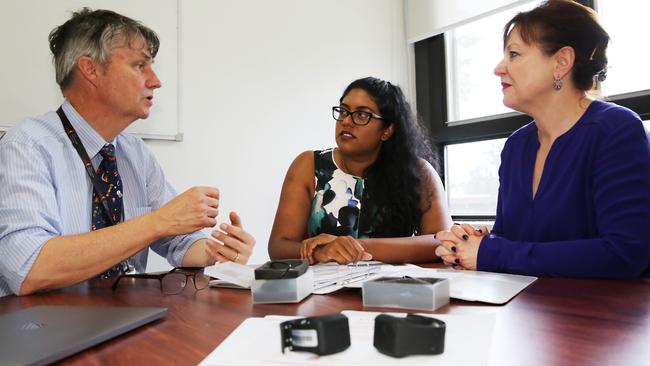Wearable tech trialled to improve lives of youth with severe mental illness
Western Sydney youth with mental illnesses will be involved in an Australian first study; tracking their stress levels using wearable technology, in the hopes of preventing youth suicide.

Parramatta
Don't miss out on the headlines from Parramatta . Followed categories will be added to My News.
In an Australian first, an innovative new program will be piloted in western Sydney to test how wearable e-health devices can improve the lives of young people with severe mental illness.
If proven successful, new technology developed by the project could dramatically change care for young people living with severe mental health disorders across Australia.
The initiative, called the unWired project, is aiming to address the mental health statistics for young people in Australia, where suicide is the leading cause of death for 15-24-year olds.
Associate Professor Beth Kotze from the Western Sydney Local Health District (WSLHD) called the project life changing.
“It is going to connect with young people’s love of devices and technology to bring us to the frontier of mental health monitoring and treatment,” she said.
Clinicians and researchers from WSLHD will manage the unWired Project across its three-year lifespan with financial support from private philanthropic organisation The Balnaves Foundation.
In the project, personal wearable e-health devices, much like a FitBit, will measure the participant’s activity and give them feedback on their level of stress.
Data will then be sent back to the wearer and their treating clinician via a purpose-built app.
“One in seven young Australians experience a mental health condition and evidence suggests half of all adult mental health conditions emerge by the time an individual is 14,” Professor Kotze said.
Neil Balnaves, founder of The Balnaves Foundation said the organisation hoped the technology will prevent youth suicide.
“The Balnaves Foundation is keen to improve the lives of young people with severe mental illness. Using technology and focusing on early intervention is a proactive step in the right direction. It is exciting to think that young people may be able to use tools like these to take greater control of their mental health,” Mr Balnaves said.
The pilot study will involve 20 young people, starting early next year, later it will be fully randomised in a controlled trial involving 80 participants — all trial participants will be patients of the Prevention Early Intervention and Recovery Service — the WSLHD Youth Mental Health Service based in Parramatta.
If you or someone you know needs crisis support call Lifeline 13 11 14 or Kids Helpline on 1800 55 1800. For local mental health services phone the NSW Mental Health Line on 1800 011 511.
